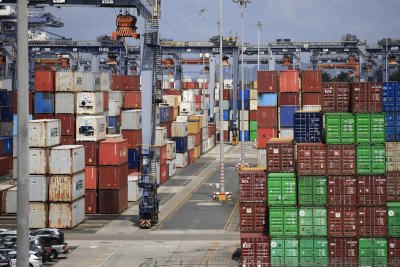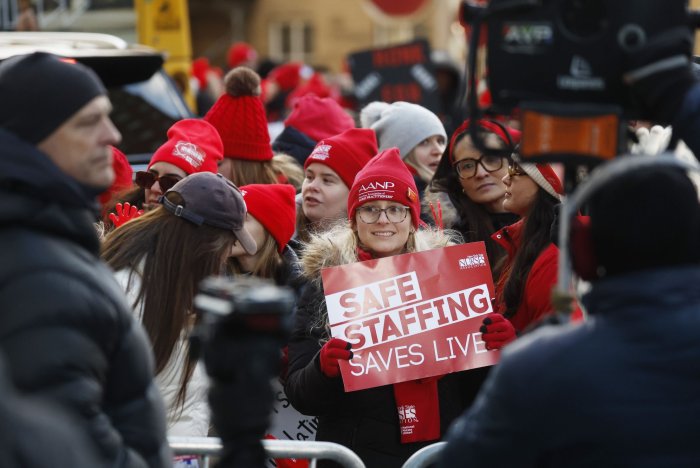Panama seizes control of two ports operated by Hong Kong subsidiary

A general view of cargo containers at the Port of Balboa in Panama City, Panama, on Monday, February 23, 2026. The Panamanian government has taken control of two ports near the Canal whose concessions, held by a subsidiary of the Chinese conglomerate CK Hutchison, were annulled by a final court ruling. Photo by Bienvenido Velasco/EPA
Feb. 24 (UPI) — Panama authorities have taken control of two ports operated by a subsidiary of a Hong Kong company, assets that came under scrutiny after President Donald Trump claimed China exerted too much influence over their operation.
Hong Kong-based conglomerate CK Hutchison Holdings condemned the Monday takeover in a statement on Tuesday that said the actions of Panama were “unlawful” and raised risks to the operations, health and safety of the Balboa and Critobal terminals that its subsidiary, Panama Ports, has been operating for decades.
“None of the actions by the Panama State were advised to or coordinate with PPC,” Hutchison Holdings said.
“The Panama State is responsible for harm and damage caused by the confiscatory actions it has taken.”
On Monday morning, Panama’s official gazette published a late-January Supreme Court ruling that made final the court’s decision that the contract law granting Panama Ports Company’s concession extension to operate the ports was unconstitutional.
The ruling came in a pair of lawsuits filed challenging the contract, which was issued by the Maritime Authority of Panama on June 23, 2021. According to a statement from the Panama presidency’s office, the contract was found unconstitutional because it gave a foreign-based company broad rights that limited the state’s control over the use and management of its resources.
After the gazette was published, Panama authorities arrived at the two ports and informed representatives of the Panama Ports Company that it must cease operations, and that those who do not comply with their orders will be prosecuted.
“PPC and CKHH will continue to consult with their legal advisors regarding the ruling and forceful takeover, the purported termination of PPC’s concession and all available recourse, including additional national and international legal proceedings against the Republic of Panama and its agents and third parties colluding with them,” CK Hutchison Holdings said.
The two ports and their Hong Kong connection were thrust into the spotlight on the first day of Trump’s second presidency, when in his inaugural address he said the United States has been “treated very badly” by Panama and that “China is operating the Panama Canal.”
Trump has repeatedly made the claim since, drawing attention to the Hong Kong-based conglomerate that has operated the two ports since 1997.




